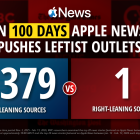Activision apparently never read its own tagline “KNOW YOUR HISTORY OR BE DOOMED TO REPEAT IT.” The company edited its new video game, Call of Duty: Black Ops Cold War to cater to communist China.
Activision quietly replaced the game trailer with one far shorter. The new one noticeably omitted footage from the famous Tiananmen Square crackdown by the communist Chinese government, which had a death toll of 10,000, according to the BBC.
 In a world still shaken by the Russiagate conspiracy pushed by the left, villainizing Russian communism is seen as timely. But showing the evil of Chinese communist tyranny is apparently too controversial, even though that’s current events.. “Activision gave no indication as to why the first trailer was removed, or even that it had happened, but according to South China Morning Post, it's because the original video contained a brief clip of footage from the 1989 Tiananmen Square protests, an event that's heavily censored in China,” PC Gamer reported.
In a world still shaken by the Russiagate conspiracy pushed by the left, villainizing Russian communism is seen as timely. But showing the evil of Chinese communist tyranny is apparently too controversial, even though that’s current events.. “Activision gave no indication as to why the first trailer was removed, or even that it had happened, but according to South China Morning Post, it's because the original video contained a brief clip of footage from the 1989 Tiananmen Square protests, an event that's heavily censored in China,” PC Gamer reported.
South China Morning Post explained how the circumstances of the clip’s censorship and removal appeared haphazard and suspicious:
“On local video platforms like Bilibili, the clip of the protests was soon replaced with a black screen or other footage. Then Activision released a one-minute version of the original two-minute trailer without the scene.”
PC Gamer explained that the video primarily was “built around a real-world interview with defector Yuri Bezmenov, in which he described a four-stage Soviet strategy dedicated to ending American dominance in the world.” This was featured alongside “[c]lips of real-world historical events—the Vietnam War, riots in the US, that sort of thing—played throughout.”
Hong Kong Daily noted that loyalists to the Chinese communist regime called out the incredibly short clip and condemned the company in no uncertain terms:
“Shortly after the one-minute mark, the trailer shows protesting students on top of what appears to be a military vehicle, sometime around the events of June 4.
“The brief reference was not missed by China’s patriotic ‘little pink’ or ‘xiaofenhong’ internet users, who lambasted game publisher Activision Blizzard for ‘exporting ideology’ and injecting ‘politics into video games.’”
“‘These white-skinned pigs are beyond saving,’ one user said on Chinese social media platform Weibo. ‘They focus not on developing the game but promoting ideology.’”
This is not the first time an American company has sold out American ideals of free speech to retain access to the profitable Chinese market.
Blizzard, which recently merged with Activision to become Activision Blizzard, suspended and withheld prize money from competitive Hearthstone player Chung Ng-wai, better known as Blitzchung. He was suspended for shouting a Hong Kong protest slogan, “Liberate Hong Kong, revolution of our times!” during a post-game interview broadcast live from Taipei, Taiwan, Oct. 6 while clad in a respirator and goggles in solidarity with the protestors.
Shortly thereafter, Blizzard employees staged a walkout in front of their headquarters as the #BoycottBlizzard hashtag was tweeted by Twitter users.
Oregon Sen. Ron Wyden (D-OR) tweeted, “Blizzard shows it is willing to humiliate itself to please the Chinese Communist Party. No American company should censor calls for freedom to make a quick buck.” Sen. Marco Rubio (R-FL) tweeted: “China using access to market as leverage to crush free speech globally. Implications of this will be felt long after everyone in U.S. politics today is gone.”
Amidst recent BlackLivesMatter protests, Activision Blizzard posted a message expressing support for “all those who stand against racism and inequality,” adding that “there is no place for it in our society - or any society.” Does this stance against oppression not apply to those persecuted by the Chinese government?
Conservatives are under attack! Contact Activision by tweeting at the official @Activision account and demand they stop kowtowing to the Chinese communist regime in censoring history and free speech.









